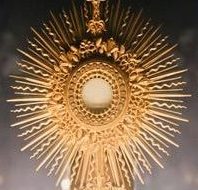

The Incarnation and Manifestation (Epiphany) of the Lord
- God created man in His image and likeness. He created them incorruptible.
- Gen. 1:26 Then God said: “Let us make man in our image, after our likeness.”
- Because of sin, death entered the world. The penalty for sin is death. The law of death prevailed upon us.
- Rom. 6:23 For the wages of sin is death, but the gift of God is eternal life in Christ Jesus our Lord
- The dilemma: God, in his justice, must render to man his punishment for disobedience, but it was not good that the work of God in man, who once shared his nature, should disappear.
- The solution – The incarnation… Jesus Christ. (from Latin in– “in” + carnis “flesh”)
- How did God manifest himself in the Old Testament?
- With Adam and Eve in the Garden – Genesis 2, 3
- Spoke with Noah – Gen 6:13
- Spoke with Abraham – Gen 12:1ff, as an angel – Gen 18:22
- Spoke and appeared to Moses – Burning bush (Ex 3:2), pillar of fire and smoke (Ex 13:21), shekina cloud (Ex 40), God’s back (Ex 33:23).
- What is the incarnation? In theological terms, it is God the son, the second person of the blessed Trinity, become man in the flesh by the power of the Holy Spirit. (He is one Person)
- Luke 1:34-35 But Mary said to the angel, “How can this be, since I have no relations with a man?” And the angel said to her in reply, “The Holy Spirit will come upon you, and the power of the Most High will overshadow you. Therefore, the child to be born will be called holy, the Son of God.
- Jesus is God –
- John 20:28 Thomas answered and said to him, “My Lord and my God!”
- John 1:14 And the Word was God . . . and the Word became flesh and made his dwelling among us, and we saw his glory, the glory as of the Father’s only Son, full of grace and truth.
- God was to shepherd his own people
- Jeremiah 23:2ff – “Then I myself will gather the remnant of my flock out of all the lands where I have driven them, and I will bring them back to their fold, and they shall be fruitful and multiply. 4 I will raise up shepherds over them who will shepherd them”[1]
- Ezekiel 34:15 – “I myself will be the shepherd of my sheep, and I will make them lie down, says the Lord God. 16 I will seek the lost, and I will bring back the strayed”[2]
- It is the union of Jesus’ divine and human nature in one person. He is fully man and fully God. This mystery is called the hypostatic union. (Has 2 natures – one divine, one human)
- Phil. 2:6-7 Who, though he was in the form of God, did not regard equality with God something to be grasped. Rather, he emptied himself, taking the form of a slave, coming in human likeness; and found human in appearance . . .
- John 10:30 The Father and I are one.
- Why was the incarnation necessary? Since sin entered through a man, redemption had to also come through man. Redemption allows us to be reconciled to God.
- Rom. 5:17 It was by one man’s offence that death came to reign over all, but how much greater the reign in life of those who receive the fullness of grace and the gift of saving justice, through the one man, Jesus Christ.
- 1Cor. 15:21-22 As it was by one man that death came, so through one man has come the resurrection of the dead. Just as all die in Adam, so in Christ all will be brought to life;
- In order for God to restore his creation to himself, a proper restitution must be made; a perfect offering for the forgiveness of sins. The sinless nature of Jesus Christ was that perfect offering that would restore us and elevate us to a higher nature than that of Adam and Eve.
- 1 Cor 12:13 “For by one Spirit we were all baptized into one body — Jews or Greeks, slaves or free — and all were made to drink of one Spirit. “
- We now partake in the divinity of God himself.
- 2Pet. 1:4 God has bestowed on us the precious and very great promises, so that through them you may come to share in the divine nature, after escaping from the corruption that is in the world because of evil desire.
Jesus in the Old Testament
- Gen. 3:15 I will put enmity between you and the woman, and between your seed and her seed; He will strike at your head, while you strike at his heel.”
- Is 35:4 Say to those whose hearts are frightened: Be strong, fear not! Here is your God, he comes with vindication; With divine recompense he comes to save you.
- Micah 5:1 But you, Bethlehem-ephrathah too small to be among the clans of Judah, From you shall come forth for me one who is to be ruler in Israel; Whose origin is from of old, from ancient times.
- Is. 7:14 Therefore the Lord himself will give you this sign: the virgin shall be with child, and bear a son, and shall name him Immanuel.
- Matt. 1:23 “Behold, the virgin shall be with child and bear a son, and they shall name him Emmanuel,” which means “God is with us.”
- Ps 22:2 My God, my God why have you forsaken me . . . (Mt 27:46, Mk 15:34)
Interesting Note: The name “Jesus” or “Yeshua” in Hebrew means “God saves”.
Jesus in the New Testament
- The Nativity
- Mat 2:1 When Jesus was born in Bethlehem of Judea, . . . behold, magi from the east arrived in Jerusalem, saying, “Where is the newborn king of the Jews? We saw his star at its rising and have come to do him homage.
- Luke 2:7 .She wrapped him in swaddling clothes and laid him in a manger.
- The Transfiguration
- Luke 9:30-31 And behold, two men were conversing with him, Moses and Elijah, who appeared in glory and spoke of his exodus that he was going to accomplish in Jerusalem.
- The Messiah
- John 20:31 But these are written that you may believe that Jesus is the Messiah, the Son of God, and that through this belief you may have life in his name.
- Matt 16:16 Simon Peter said in reply, “You are the Messiah, the Son of the living God.”
- The body of Christ
- He was subject to all the bodily weaknesses to which human nature is universally subject; such are hunger, thirst, pain, and death. Christ hungered (Matthew 4:2), thirsted (John 19:28), was fatigued (John 4:6), suffered pain and death.
- Jesus did not miraculously bring about all these bodily weaknesses; they were the natural results of the human nature He had assumed.
Heresies of the Incarnation in the Early Church
- Nestorianism
- Patriarch of Constantinople (428 AD) – Denied the hypostatic union was a physical joining of the 2 natures of Christ. Called Mary the Christotokos (Christ-bearer) instead of the Theotokos (God-bearer) because God cannot be joined with human flesh. The doctrine of Mary as the Mother of God was officially defined in the Council of Ephesus in 431 AD. His followers were called Nestorians.
- Monophysitism
- The leader of this heresy was Eutyches (~435 AD). Taught that Christ only had one nature – a divine nature. His followers were called Monophysites.
- Condemned by the Council of Chalcedon in 451 AD.
- Monothelitism
- Started by 3 Patriarch of the Oriental Church. Defended the union of two natures in one Divine Person; but denied that this Divine Person had two wills – a human will and a divine will. Both wills are perfectly united. Followers are called Monothelites.
- Condemned by the Third Council of Constantinople, 680 AD.
- Docetism (circ. 200 AD)
- From the Greek – dokein, which means “to seem” like an apparition or phantom.
- It was the belief that the human form of Jesus was mere semblance without any true reality. It is the belief that Jesus only seemed to be human, and that his human form was an illusion.
- Condemned at the Council of Nicaea in 325 AD.
[1] The Holy Bible: New Revised Standard Version, Catholic Edition. (1993). (Je 23:3–4). Washington, DC: National Council of Churches of Christ.
[2] The Holy Bible: New Revised Standard Version, Catholic Edition. (1993). (Eze 34:15–16). Washington, DC: National Council of Churches of Christ.
Catholic Doctrine about Christ

Understanding God’s Plan

